Classical CDs Weekly: Ruperto Chapí, Rossini, Walton
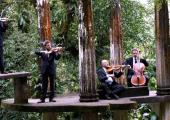
Vibrant string quartets, an upbeat Mass setting and late music from a 20th-century British composer

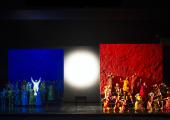
So easily parcelled up as a master of opera buffa, Rossini is a composer who constantly surprises by the emotional and intellectual range of his best work. William Tell, which opened WNO’s current season three weeks ago, is a major progenitor of Verdi, even arguably Wagner: grand opera devoid of what Wagner himself called effects without causes.
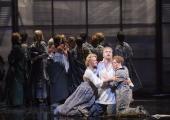
A few months ago, while looking something up about Liszt’s piano piece “Chapelle de Guillaume Tell,” I discovered to my horror that William Tell – like Robin Hood – may never have existed. Even the apple, like the one in Genesis (there is no apple in Genesis), seems to have been made up by someone or other. Tell none the less lives on, if nowhere else, in Schiller’s play and Rossini’s opera based on it, of which everyone knows the overture and – perhaps without realizing it – some of the ballet music.
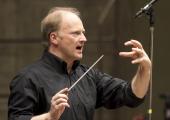
First, confessions. I’m the dance critic here at theartsdesk. Yes, this is a review of a concert performance of an opera, and no, I haven’t picked up a detailed knowledge of Rossini’s oeuvre as a byproduct of my education in pirouettes and Pina Bausch. I attended last night’s concert as a common or garden punter, and a chance one at that, taking a ticket to save wasting it after its original owner had to give it up because of a work commitment.
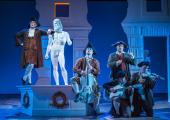
Speaking from the stage before curtain-up on The Barber, Longborough’s founder and chairman, Martin Graham, stressed the hard work put in by director Richard Studer and conductor Jonathan Lyness on their two 2014 productions, this one and Tosca. He wasn’t kidding. Read the programme and you find (for both operas): director, Richard Studer; designer, Richard Studer; costume, Richard Studer. Lyness conducting both works.

Lovely singer, consummate pianist, shame about the programme. “Art song” is a rather prissy term, but we could have done with a few to ballast a diet of old pop – French chansons, Italian canzonettas, Spanish canciones, Victor Herbert tralala. Even a few substantial operatic arias with piano accompaniment made have made a difference. Not that Pretty Yende didn’t reveal her instinctive musicality and the lessons of her bel canto training in Milan at some point in every number, but an evening of encores is just too much for even the sweetest tooth.
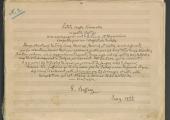
“A little skill, a little heart, that’s all,” wrote the 70-year-old Rossini as epigraph to his late, not so small and not always solemn mass. It’s not all, of course. This last major self-styled “sin of old age” (péché de vieillesse) stands in a similar relation to his final, epic opera Guillaume Tell as Verdi’s Falstaff does to his Don Carlos. Only in Rossini’s case the gap was longer, nearly 35 years, and no Otello intervened (Rossini had composed his own operatic version of Shakespeare’s play back in 1816).
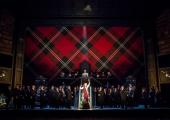
I mean, really, what is the point of Rossini? That’s actually not as stupid as it sounds. No-one has ever mistaken any of his operas for taut music-drama, and even the best of them are peculiarly difficult to pull off because without first-rate singers, everything collapses. That is, without doubt, not a problem facing the Royal Opera’s new La donna del lago. Trust me: London hasn’t heard such spectacular Rossini singing in decades.
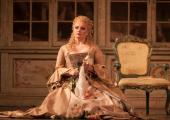
There is only one rule by which one should ever judge a Barber of Seville. If your eyes (and possibly also your trouser legs) aren’t moist by the time the interval arrives, you might as well leave. The last time this Jonathan Miller production was revived by the English National Opera, it passed with flying colours. This time round, I was dry as a bone. Three hours and I notched up two smiles and a snigger.
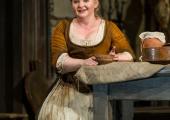
Rossini's La Cenerentola is not an opera that I'd normally recommend to anyone with even half a brain. It takes the simple if mildly nauseating little tale of Cinderella, pads it out with parental abuse and drawn out cliffhangers, and ends in a pass-the-sick-bag denouement of "Goodness Triumphant". Yet, in an act worthy of the fairy godmother herself, Glyndebourne has transformed the piece into something unmissable.